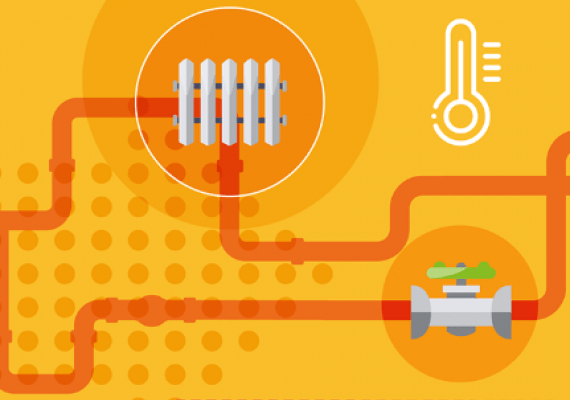SHIFFT

Sustainable Heating: Implementation of Fossil-Free Technologies
Priority Axis
Low Carbon TechnologiesSpecific objective
Low Carbon Technologies
Lead partner
University of ExeterContact
Start Date
01/02/2019End Date
31/03/2023Project budget
6 640 543 €ERDF amount
3 984 326 €ERDF rate
60%About
Common challenge
A sharp decrease in fossil-fuel usage is needed in order to achieve the EU's climate goals. Households typically use 79% of energy for space and water heating. Of this, 84% of this energy is fossil-fuelled. Household CO2 emissions for heating in countries within the 2 Seas area currently is around 90Mtonnes/yr.
There is enormous potential to reduce CO2 emissions with wide-scale adoption of low carbon heating. But few structures currently use sustainable heating sources. This tends to be because there is a lack of awareness and knowledge among homeowners in the 2 Seas area on the different technical options and advantages of sustainable heating. However also, the initial investment costs for sustainable heating installations are high for individual homeowners.
To tackle this, examples of sustainable heating in residential and community buildings are needed. This can be implemented alongside active engagement of homeowners and communities in order to raise awareness, remove barriers and create facilities (e.g. financing schemes, incentives) to facilitate the transition to sustainable heating.
Overall objective
Main outputs
Cross border approach
Main Achievements
The partnership completed four capital investments in a variety of settings to demonstrate sustainable heating technologies, evaluate performance and promote applications for further use. Six partner cities and regional pilots consulted with stakeholders to ‘co-create’ sustainable solutions to become fossil free in terms of heating.
A novel district heating system was constructed in Ville de Fourmies. This pilot connected a range of municipal buildings to sustainable heating, fuelled by locally harvested wood. This is a major element in Ville de Fourmies third industrial revolution strategy.
In Mechelen, gas absorption and air source heat pumps were installed in new build social housing. This is a great inspiration for the adoption of sustainable heating in urban regeneration and social housing schemes.
Lightweight solar panels were installed to power municipal buildings in De Blikken, Middelburg. This first-in-the-region project demonstrated how municipalities have options to adopt technologies tailored to their specific needs.
Battery storage and air source heat pumps were installed in a communal domestic refuge in Norfolk, UK. This powered several flats with sustainable and affordable heating. The demonstration of this can be rolled out on a grand scale leading to uplift from fuel poverty and substantial core support for the more vulnerable members of society.
SHIFFT’s co-creation activities in Bruges, Middelburg, Mechelen, Fourmies, Hauts de France and Norwich led to localised individual and collective action on the road to a sustainable heating future.
This work ultimately produced a package of guidance for local authorities in French, English and Dutch to capture and share the project’s experiences and set out practical tools for accelerating the transition to net zero with sustainable heating for all.
Testimonial
Thanks to SHIFFT, Ville de Fourmies has also studied the feasibility to develop a larger heat network at the city scale. This one will be delivered by the end of 2025. It will provide a minimum of 31% of the city needs and the city is now studying the connection of individual houses which could increase the coverage of the entire city’s needs by 45%.
